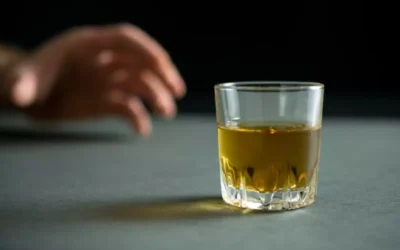Cannabidiol CBD: MedlinePlus Supplements
There is an exception to section 201(ff)(3)(B) if the substance was “marketed as” a dietary supplement or as a conventional food before the drug was approved or before the new drug investigations were authorized, as applicable. However, based on available evidence, FDA has concluded that this is not the case for THC or CBD. The 2018 Farm Bill, however, explicitly preserved FDA’s authority to regulate products containing cannabis or cannabis-derived compounds under the FD&C Act and section 351 of the Public Health Service Act (PHS Act). FDA treats products containing cannabis or cannabis-derived compounds as it does any other FDA-regulated products — meaning they’re subject to the same authorities and requirements as FDA-regulated products containing any other substance. This is true regardless of whether the cannabis or cannabis-derived compounds are classified as hemp under the 2018 Farm Bill.
How to use Cannabidiol 100 Mg/Ml Oral Solution
- In Alaska, California, Washington, and many other states, only licensed cannabis shops can sell CBD in food or beverage forms.
- However, there are many unanswered questions about the science, safety, and quality of products containing CBD.
- Collection of detailed, accurate product information is a challenge, especially with inhaled products (Corroon et al. 2020).
- When a product is in violation of the FD&C Act, FDA considers many factors in deciding whether or not to initiate an enforcement action.
- That’s not enough to get you high, and you’d likely have to ingest a lot of CBD oil to fail a drug test for THC.
The objective of this study is to assess the impact of CBD-rich treatment on symptom burden, as measured with a specific symptom assessment scale (ESAS-r). At the same time, FDA recognizes the potential therapeutic opportunities that cannabis or cannabis-derived compounds could offer and acknowledges the significant interest in these possibilities. FDA continues to believe that the drug approval process represents the best way to help ensure that safe and effective new medicines, including any drugs derived from cannabis, are available to patients in need of appropriate medical therapy. The Center for Drug Evaluation and Research (CDER) is committed to supporting the development of new drugs, including cannabis and cannabis-derived drugs, through the investigational new drug (IND) and drug approval process (see Question #16).
What’s the deal with getting and using CBD oil in Australia?
Cannabidiol acts as molecular switch in innate immune cells to promote the biosynthesis of inflammation-resolving lipid … – ScienceDirect.com
Cannabidiol acts as molecular switch in innate immune cells to promote the biosynthesis of inflammation-resolving lipid ….
Posted: Wed, 30 Aug 2023 13:07:07 GMT [source]
Before taking cannabidiol, tell your doctor or pharmacist if you are allergic to it; or if you have any other allergies. This product may contain inactive ingredients (such as sesame seed oil), which can cause allergic reactions or other problems. RCTs on CBM and pain symptoms provide inconclusive results; however, several report that treatments of THC and CBD have some benefit for pain management (Häuser et al. 2018; Russo 2008; Prosk et al. 2020). Our results are largely novel as research on the effect of CBD on pain control is very limited (Boyaji et al. 2020). The reduction in reported anxiety may also contribute to the improvement in pain perception. The interactions between these medications and CBD may be mild, and you might not have to change your treatment.
Cannabidiol use and effectiveness: real-world evidence from a Canadian medical cannabis clinic

CBD is also found in many foods and drinks in the U.S., so if you plan to consume these, discuss your total daily dose with your healthcare provider. If you notice these effects while using CBD oil, discontinue and discuss side effects with a healthcare provider as soon as possible. A 2017 study found that CBD products containing THC may decrease the time needed to fall asleep. And, a 2021 meta-analysis on CBD’s effects as an appetite suppressant and as a sleep aid concluded that, while there was a moderate positive impact on appetite control, CBD showed no effect on sleep. There is conflicting evidence to support the use of cannabinoids to treat sleep disorders. Although some study outcomes have been favorable, most have not.
Lastly, this study did not include safety data assessment, future studies should investigate safety considerations of CBD (Chesney et al. 2020). Collection of high-quality RWD will require improvements in patient retention, data monitoring, and more robust data collection methods within a controlled clinical setting. The self-reported subjective assessment used may be biased by the patient’s positive expectation of treatment, which could lead to a possible placebo effect.
- That means taking CBD oil with these drugs could have a more substantial effect than you need or make them not work as well.
- Also, there was a large drop of sample size (53% loss) due to missing data.
- Any changes in mood or behaviors require evaluation as to whether it results from other medications, CBD, or underlying illnesses.
- If you have a cannabis-free topical you already enjoy, consider finding a CBD topical with similar ingredients.
- None of the authors are involved in the care of patients or in treatment decisions.
- The FDA continues to believe the drug approval process represents the best way to ensure that safe and effective new medicines, including any drugs derived from cannabis, are available to patients in need of appropriate medical therapy.
- Certain cosmetic ingredients are prohibited or restricted by regulation, but currently that is not the case for any cannabis or cannabis-derived ingredients.
VITAMINS & SUPPLEMENTS CENTER
In a randomized controlled trial of 88 people already taking medication for schizophrenia, 1,000 milligrams per day of CBD oil decreased positive psychotic symptoms (hallucinations or delusions). However, there were no significant differences between CBD oil and placebo regarding negative psychotic symptoms (like blunt affect or disinterest in others). This priority includes making sure consumers know about products that put their health and safety at greatest risk, such as those claiming to prevent, diagnose, is cannabidiol addictive treat, mitigate, or cure serious diseases. For example, the agency has warned companies to stop selling CBD products they claim are intended to prevent, diagnose, treat, mitigate, or cure serious diseases such as cancer, Alzheimer’s disease, psychiatric disorders and diabetes. The U.S. Food and Drug Administration (FDA) approved Epidiolex, a medicine that contains purified CBD from hemp, to help treat rare seizure disorders. The FDA has concluded that this drug is safe and effective for this intended use.
- Our continuing review of information that has been submitted thus far has not caused us to change our conclusions.
- Yet, RWE on CBD-rich products is scarce (Goodman et al. 2020; Shannon et al. 2019).
- FDA continues to believe that the drug approval process represents the best way to help ensure that safe and effective new medicines, including any drugs derived from cannabis, are available to patients in need of appropriate medical therapy.
- You may have also heard celebrities, influencers and podcast presenters touting the many benefits of taking a regular dose of the medicinal cannabis concoction, from treating anxiety and insomnia to general pain relief.
Sources of CBD Oil and What to Look For
This material is provided for educational purposes only and is not intended for medical advice, diagnosis or treatment. Data sources include Micromedex (updated 6 May 2024), Cerner Multum™ (updated 6 May 2024), ASHP (updated 10 Apr 2024) and others. More research is needed to develop specific guidelines around CBD dosing for different medical conditions. Until then—if you’re using CBD oils, edibles, or other products to treat symptoms https://ecosoberhouse.com/ like anxiety, stress, pain, or insomnia—consider starting with a low dose of CBD (around 5mg) and slowly increasing until you’ve found the optimal dose for you. The FDA is evaluating the regulatory frameworks that apply to certain cannabis-derived products that are intended for non-drug uses, including whether and/or how the FDA might consider updating its regulations, as well as whether potential legislation might be appropriate.
Here’s a first look at how many Australians are taking medicinal cannabis
Because they can be long-lasting in effect, CBD edibles are most popular among people managing pain, inflammation, and stress. It’s most commonly found as a liquid extract in bottles with a dropper built into the lid—also called tinctures. CBD oil can be dropped under the tongue for fast absorption or mixed directly into food or drinks. That’s because drug tests screen for THC, and many CBD products have trace levels of THC.
- In September last year, the TGA approved a cannabidiol-based medicine that can be prescribed to treat rare, but incredibly severe, drug-resistant forms of epilepsy that start in childhood.
- Ask your doctor before using opioid medication, a sleeping pill, a muscle relaxer, or medicine for anxiety or seizures.
- CB1 receptors are found in both the central and peripheral nervous systems, with the majority of receptors localized to the hippocampus and amygdala of the brain.
